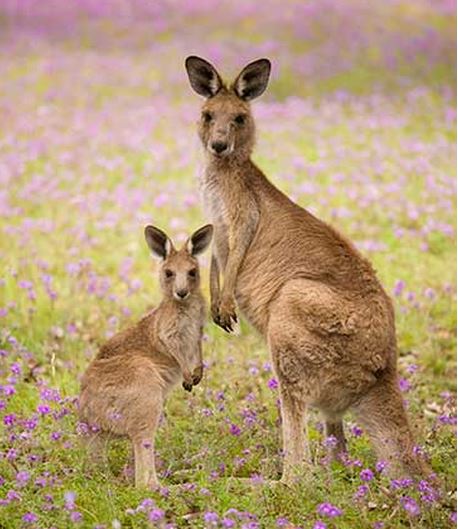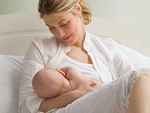Why is caring for young so lopsided among the sexes in most of the animal kingdom, including humans? According to British and German researchers, as soon as one of the sexes evolves attributes, evolution pushes that sex to develop parenting features more rapidly.
In other words, for example with humans, women’s bodies evolved to make them better at caring for babies (breastfeeding) and children because they made more of an effort and men didn’t.
The researchers wrote in the journal Proceedings of the Royal Society B (citation below) that as one sex evolves parenting attributes, such as increased brain size in some fish and mammary glands in mammals, which enhance the ability to care, that sex over time takes over more and more of the caring duties and evolves in that direction more rapidly.

Tiny initial differences which predispose one sex to care more are exaggerated once the ability to care evolves. Hence, female kangaroos developed pouches that enhance their ability to care, and so they do most or all of the care. (Image: University of Bristol)
In the animal kingdom, parenting patterns range from care by both parents, as seen in many birds, care by just one parent as occurs in most mammals, to male/female biased care.
Care is vital for health and survival
Parental care involves one of the main conflicts of interest between males and females. Care by either sex is good for both parents as it enhances the health and survival prospects of their offspring.
Providing care is only costly to the individual that is caring.
“As a result, each partner does best in a situation where most of the care is provided by the other partner – an outcome that is clearly impossible.”
Differences in care can be explained by the varying costs and benefits of caring, with two factors currently believed to be the main drivers:
1. Certainty of parentage, which reduces the benefit of care for the sex that is less certain – usually the male.
2. Sexual selection, which increases the cost of care for the parent that can mate again more rapidly.

Among many crocodile species, the young are cared for by the father.
Professor John McNamara, from the School of Mathematics, Bristol University, England, and Dr. Max Wolf, of the Leibniz-Institute of Freshwater Ecology and Inland Fisheries, Germany, used a modelling approach to demonstrate that even when these factors are absent, significant differences in care are to be expected.
The researchers found that the sex difference in both the levels of care and ability to care are likely to suddenly evolve as a result of the co-evolutionary interaction between ability to care and levels of care, and the sexual conflict of interest over parental care.

Does this mean that if our ancient human ancestor males had made more of an effort to look after their kids, modern men might today be able to breast feed?
Evolution focuses on the sex with greater benefits or lower costs
Professor McNamara, who specialies in behavioral and evolutional biology, explained:
“While the coevolution of care and the ability to care thus predicts strong sex differences in care to emerge, it does not predict which sex is more likely to care. However, once other factors that give rise to even the slightest differences in the cost and benefits of care between the sexes, such as differences in certainty of parentage, are taken into account, a clear directionality emerges.”
“The sex with the lower cost or higher benefit of care evolves to both be more able to care and to provide much higher levels of care than the other sex.”
In the case of humans, men “shirked” the biological cost of looking after their kids.
The authors suggest that the ability to care and the coevolution of levels of care could be a key factor underlying the evolution of sex differences in caring for offspring.
Citation: “Sexual conflict over parental care promotes the evolution of sex differences in care and the ability to care,” John M. McNamara and Max Wolf. Proceedings B. DOI: 10.1098/rspb.2014.2752 Published 18 February 2015.

